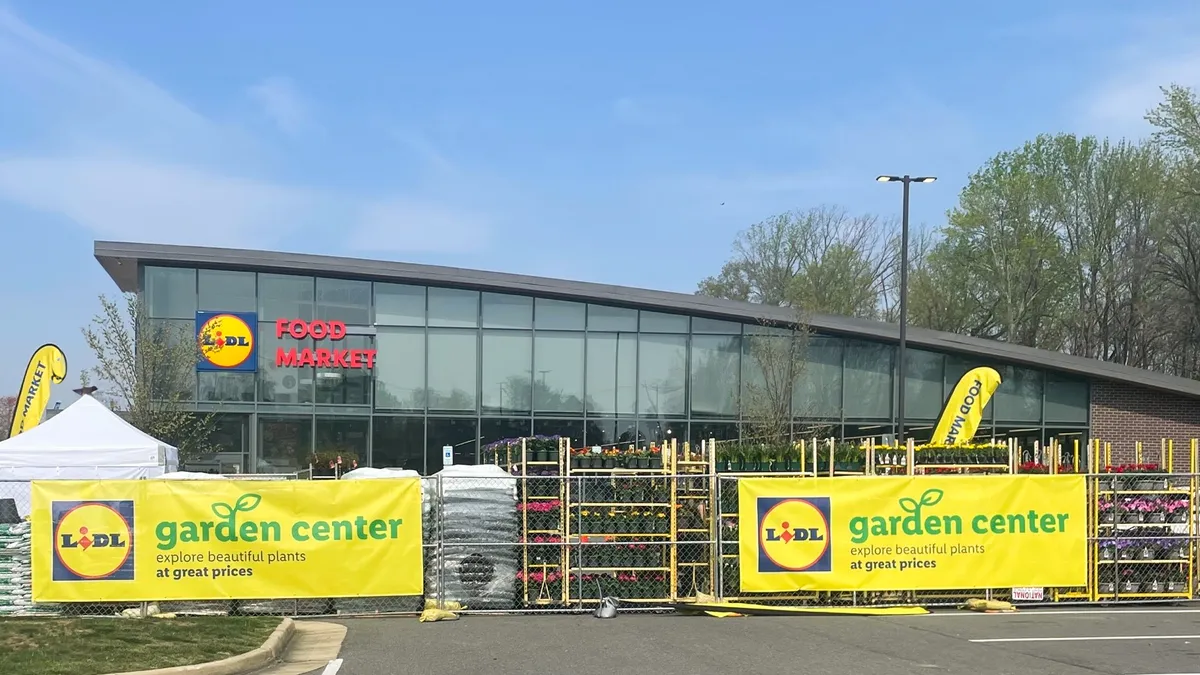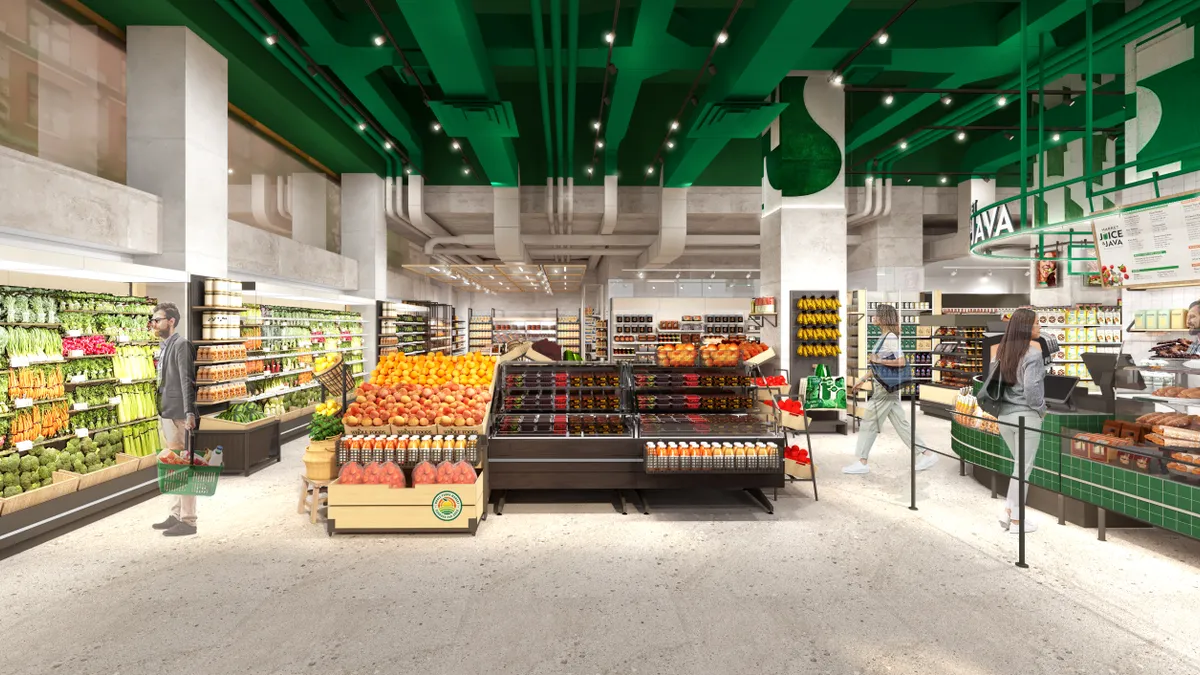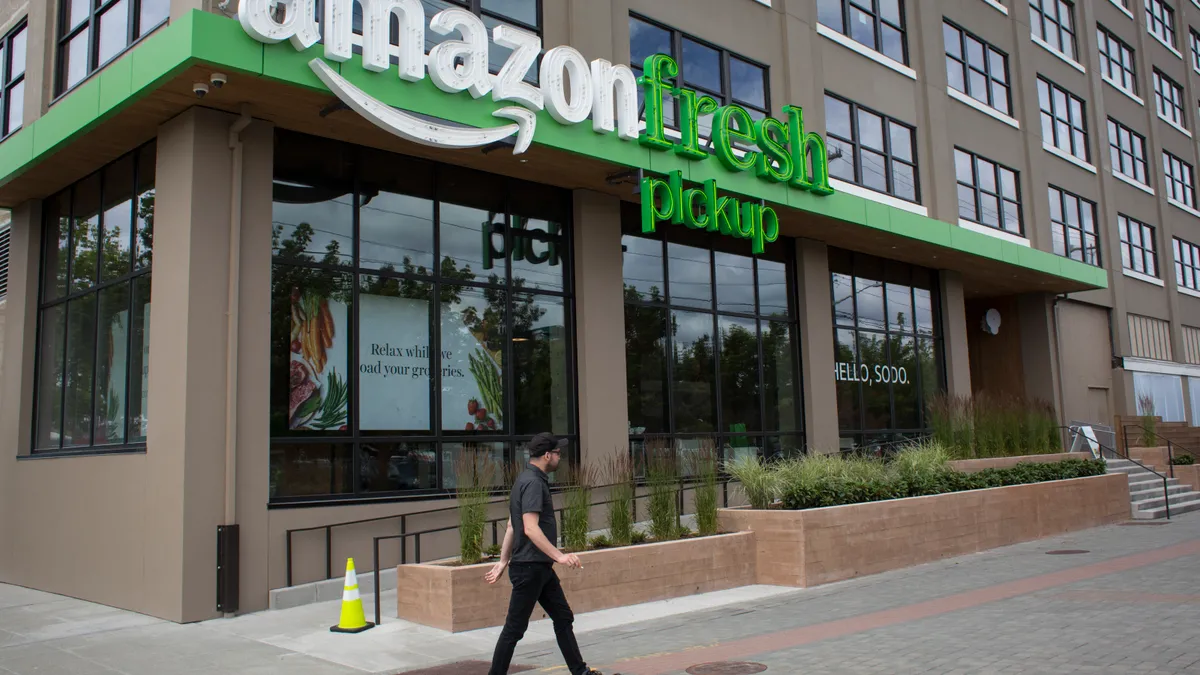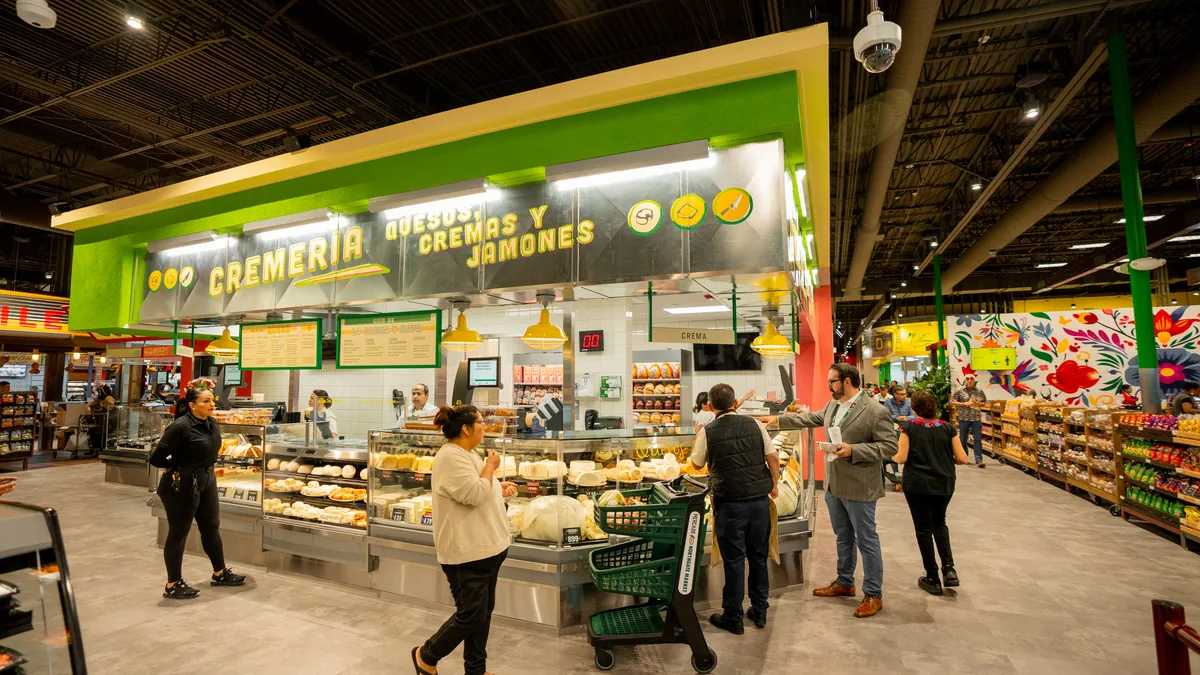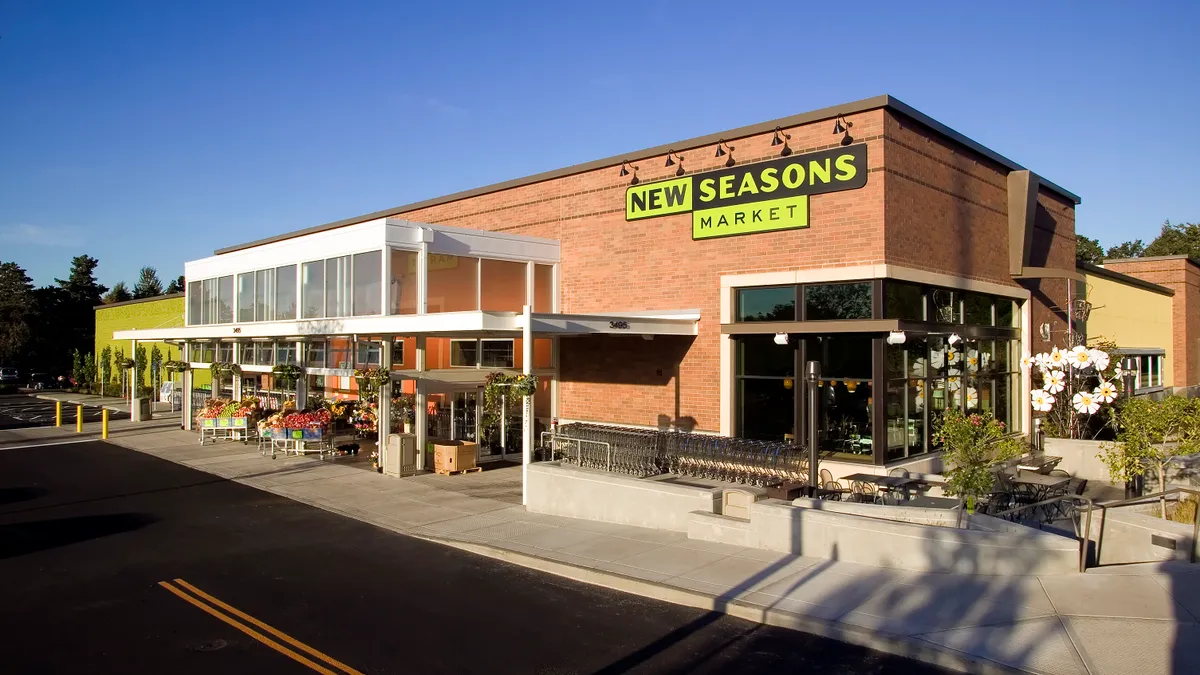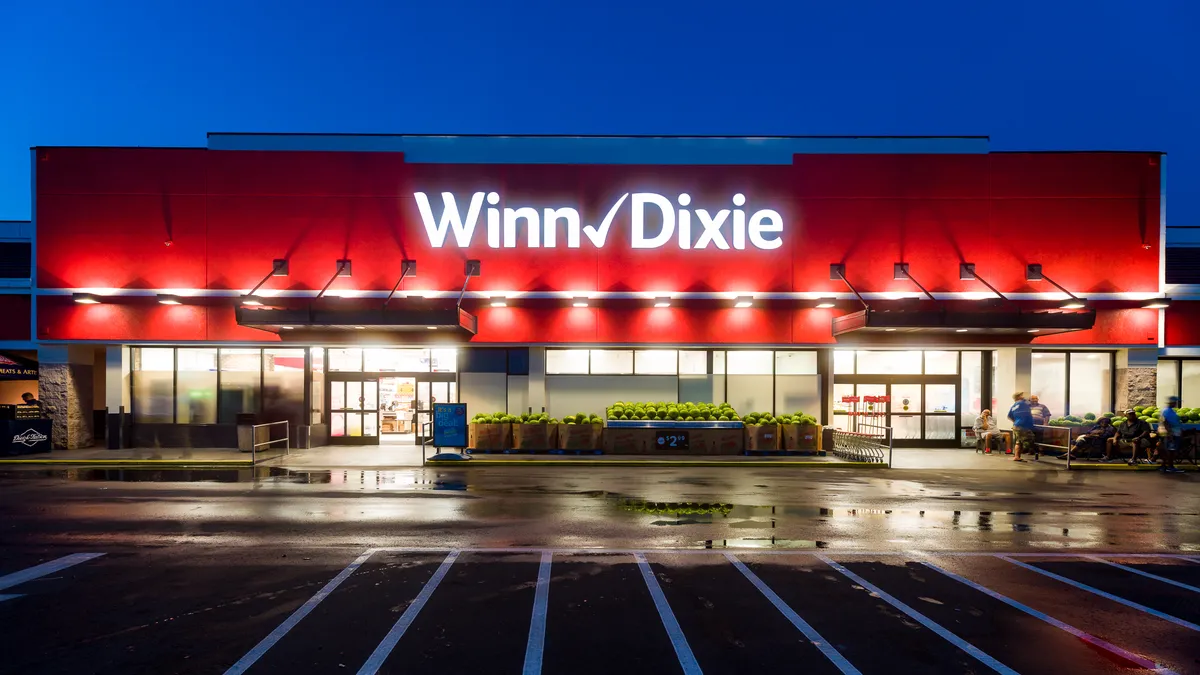The rapid rise of biscuit maker Mason Dixie Biscuit is a tale most food companies could only dream about.
Four years ago, it began as a tiny, Kickstarter-backed upstart in a local Washington, D.C. market. But when an Arlington, Virginia Whole Foods store picked up its products in November 2015, a five-week supply of its biscuits sold out in three hours. The early success was enough to convince the retailer to carry the product in 22 more stores later that year. Today, its operations have grown to include a standalone restaurant in addition to a burgeoning presence in more than 2,000 retail locations — including Whole Foods, Kroger, Giant and Harris Teeter.
Mason Dixie's biscuit line, which includes four varieties — sweet potato, buttermilk, cheddar and sweet corn — are made from the real butter, milk and other clean, recognizable ingredients popular with consumers. It expects to sell more than 1 million of its homemade-style baked products this year. The company also plans to introduce two of its restaurant sandwiches at convenience and large grocery stores to grab on-the-go consumers craving protein.
"There is good homemade tasting food that should be packaged and available to the consumer," Ayeshah Abuelhiga, CEO of Mason Dixie Biscuit, told Food Dive. "Yes, people are more moderate about how they're dieting and eating. They will have a salad and sandwich and maybe a protein bowl, but there's a cheat day, everyone has a cheat day, and we like to be a part of that cheat day for people."
Abuelhiga and Ross Perkins, the company's chief operating officer, spoke with Food Dive about the company's rapid growth in the retail space, and how changes taking place throughout the food and grocery industry are impacting their operations. The interview has been edited for brevity.
Food Dive: Talk about your background and your ties to food.
Abuelhiga: At the end of the day, you crave things that are nostalgic and homemade. You crave things you grew up on, and for a lot of people in America they grew up on biscuits. I'm not even the stereotypical American. I'm like half Palestinian, have Korean, born in Baltimore, immigrant parents — you would think I'd be eating completely ethnic foods, but I didn't. I grew up on fried chicken and biscuits just like everybody else, and maybe that's part of it, too. It's like unifying food because it is so American. You ask somebody from Ethiopia, they have no idea what a biscuit is, but we do. I keep saying it, but I think that nostalgia plays a huge part in how we eat in America, and I think that people that are craft makers today that are investing in doing a better Ho Ho, a better biscuit, a better candy bar. I think that the market is ripe for better tasting products that are of our generation and hopefully become a bigger brand by our children's generation, just like we grew up on all these other brands.
Food Dive: How did you end up settling on a biscuit as your primary product to build a business around?
Abuelhiga: In thinking about how to [make a cheap food serving the masses,] I ... went on a food scouting trip to San Francisco and was looking at breakfast as a possible avenue to do that, and that's where the biscuit idea came up because I went to this farmer's market, had a breakfast sandwich, it was on a croissant, it was greasy, it was falling apart. When I walked into the building there's this ... cart of biscuit mixes, and that's when I was like, "Okay, now I have it. We're gonna make the one item, that central item, the biscuit, and all the southern foods that accompany it will be a partner with that biscuit." And that's kind of how the thought process came about."
Food Dive: You operated a small pop-up at Union Market, an upscale food court in Washington, D.C., for two years before making your way into retail. How did you get into the supermarket space?
Abuelhiga: We started selling those at the market and they were doing super well. We'd sell out within the first hour, so then we were like, "Okay, so we have something." Then we got invited to Emporium, it's like an artisan food market that happens here twice a year, and we made like ... I don't know, 600 units, and brought them with us over the course of the two days. We sold out of everything. One of the first people to come by we didn't know. She'd bought a ton of stuff, and she left. Three months later she emails us and it's the regional marketing manager for Whole Foods and she said, "I finally got a chance to bake the biscuits for my son and he absolutely loved them. How do we get them into Whole Foods?" And that's kind of how the whole CPG line launched.
Food Dive: Your first Whole Foods store was in Alexandria, Virginia, where you launched the day before Thanksgiving 2015. Initially, you had enough supply to last though December, but you ended up selling out in three hours. What did you think?
Perkins: Obviously, we were super surprised by that kind of reception. ... So very quickly, we went from one store to six stores, and then by the end of 2015, so just a few weeks later, we're at 23 Whole Foods, which maxed out our distribution at the time. ... And then shortly thereafter, we went regional with Whole Foods, got another distributor to handle our accounts, especially outside the Washington D.C. market. Then very shortly after that we picked up Harris Teeter, and that was basically our first big account that we had. So for 2016, it was basically managing our Whole Food accounts and our Harris Teeter accounts, and strategically planning where we'd go after next. And now we're in Publix, and we launched in Kroger in November.
Food Dive: Can you talk about your competitors in the market?
Perkins: It's a very sticky product. We find that once a consumer buys it, they'll buy it repeatedly, just because there's not a lot of competition in that space. Our main competitor is Pillsbury, and they use oils as their fats. We still use the real butter, real milk, and real buttermilk, and especially for conscientious consumers who want clean product, who want to know what they're putting into their body, we give them that avenue.
Food Dive: How are you dealing with the consumer's interest in eating healthier?
Abuelhiga: One of the thing's we also tell people during the demos is that one biscuit is the same caloric intake, and sometimes less fat, than two pieces of white bread. You look at two pieces of white bread you'd be lucky to get that thick of a diameter. You crush it into a ball and it's like this big. Well, you're getting a hearty biscuit with whole ingredients and it's less calories and less fat. It's really about educating the consumer about what enriched product does to you, what preservative-filled product means to the calorie intake and breakdown of what that product's made of, and honestly, we sell a nostalgic product. It's why we wanted to open a Southern restaurant in the first place. People that crave this food crave something bigger than just the food. They want the memories of home. They want the good times they had growing up, the football games, Sunday night lights, that whole thing comes to mind.
Pillsbury's owned that space. They probably tasted different when I was a kid, I can't remember, but if you want a biscuit now you're just programmed to think, "I'm gonna buy from Pillsbury." And we're trying to change that up because there are options out there. There is good homemade tasting food that should be packaged and available to the consumer, and I think that more and more people are wanting that because that never goes away. Yes, people are more moderate about how they're dieting and eating, they will have a salad and a sandwich and maybe a protein bowl, but then there's a cheat day, everyone has a cheat day and we like to be a part of that cheat day for people. But at the end of the day, I mean people stick to diets only for so long, right?
Food Dive: Now that you operate in both retail and the restaurant space, what do you see the future being for Mason Dixie?
Abuelhiga: That's a good question, and we honestly recently really honed in on what we want to do based on how well CPG is doing. ... The CPG line is gonna dictate where we go next on the restaurant side. (because Mason Dixie gets sales data from stores in half the country that could determine the best placement for more restaurants.)
People will grab the biscuits at Whole Foods and then they'll come in (the restaurant), they'll do a double take, and they did not put two and two together. They did not think that the biscuits they bought were made by the people that own this restaurant. And then this epiphany happened and they love it even more because then they're like "Oh my God, I found it!" And so we're starting to create some brand loyalty, like Ross said, we have a sticky product, so we have a lot of brand loyalty and loyalists that are buying in South Carolina and Atlanta, all these markets, and it'd be really awesome to give every individual market where we're doing well a branded Mason Dixie [restaurant] that really helps to hammer home the product line, re-enforces what it's like if you had it handmade fresh versus if you bought it yourself and it just shows them it's the same thing. That's what we want people to know.
We've done well in both avenues this year, which is why up until [mid-October] it was a really hard decision to make strategically of how we would proceed with our investment strategy. But, again, I think that it's a better strategy because now we can organically grow the restaurants based on real data and a brand footprint that precedes us instead of us having to come out of nowhere, spend all this money on national advertising as a restaurant just opened, right? The cross-marketing opportunity is huge.
Food Dive: Would you have any interest in working with a bigger CPG company?
Abuelhiga: We're open to it. The biggest challenge for us is maintaining brand ownership, and any one of these fast-growth manufacturers in CPG, young companies that have done super well, will tell you the same thing, that the hardest thing right now is to manage the brand identity once it gets sucked up. It doesn't matter how many times they tell you "No, you own that. You are gonna be the CMO." And at the end of the day, you have to succumb to the corporate structure. ...You can't just be at the reins of our CPG line and they say you have marketing control, but then you have to run a restaurant that's based off of that same product. ...You've gotta find the right partner, that one who wants to buy the product and not change it. So that's the hardest part, you're tearing away your heart for the brain, right? It's like, you don't wanna make that decision. ... We've been able to structure ourselves in a way that we will be very self-sustainable for a long time. And it is because of the dual revenue stream, and it is because we figured out a way to engineer things so that it works for us from a cash flow perspective. So for us it's like, if we're gonna take on a big-brand partner, it has to be meaningful and it has to be committed. They have to be committed to the same brand values, the same market values that we have and loyalty to our customer."
Food Dive: How has the consolidation in the grocery space affected your business?
Abuelhiga: This industry is based on multi-billion dollar corporations, it's not built for our size to scale. There's so many opportunities I think right now, for young companies, young people, disruptive people, to start taking on this industry and changing it and making it for us, as a consumer. We shop differently, and the aging base of the folks that have worked their career in the food business is posing its own challenges, 'cause they're gonna retire.
Perkins: Yeah, and they've done things the same way for 25 years, and they're not adapting and I'm like "Just 'cause you did it for 25 years is not an excuse to keep doing it this way."
Food Dive: What do you attribute your success to?
Perkins: I think our success has been due to timing. If we had started a year later, I think it would have been much, much more difficult. ... Whole Foods was open to having someone just launch a product in November in one of their stores. The industry is going through a lot of changes, so it's going to be much more difficult for a small craft manufacturer like us to have an opportunity to prove their concept.
Abuelhiga: Like Ross said, we're lucky, timing was on our side when we were able to launch, but it's gonna be harder and harder for somebody with a dream, or for chef-driven products, which every consumer wants, every store wants. But when you kill innovation by not allowing those producers to come to you personally and pitch, how are you ever gonna get that stuff on the shelf?
Food Dive: So you think consolidation and changes in the industry are stifling that?
Abuelhiga: I think it'll stifle the ability for small craft makers to get ahead fast. But it is a good thing for established manufacturers that are looking for growth. We don't have a million dollar travel budget to brief every buyer in every region, right? No one really does anymore. Even for a grocery chain, the load for them to try accommodate corporate structure as well as their own regional ... I mean, that's hard. ... It does remove a lot of that ability for that regionalization of food to come out. It's hard for a small producer to make it because you don't have the budget to brief a 150-plus stores."







